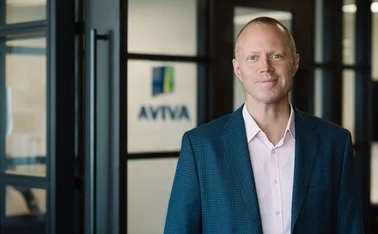
View from the top: Risk ready for Rio

With London 2012 behind us, Rio 2016 offers another sensational showcase for global risk management, says David Ross.
It's been a truly memorable summer of sport, with an amazing victory for Europe in the Ryder Cup, Bradley Wiggins winning the Tour de France, and, of course, Team GB's massive haul of medals at the London Games, where our own Team Gallagher hosted hundreds of clients from around the world, allowing us to proudly showcase London.
But world-class sporting events are not just about fun. They spawn large risks and sizeable premiums. The aggregate gross written premium for the London Olympics exceeded £3bn, so there's plenty of scope for business to be done.
Time flies and 2016 will see Rio hosting the next Games. The International Olympic Committee, alongside hundreds of private companies involved in construction, security and consulting, has already begun investigating coverage requirements.
And, although Rio will be able to boast a number of venues and infrastructure projects delivered ahead of time, as Brazil is hosting the 2014 Fifa World Cup, an estimated £15bn is slated to be spent specifically on construction for the 2016 Games.
Aside from the construction risks there are multiple parties with insurable interests, everything from global sports bodies to TV and broadcast providers, sports and sponsorship marketing firms to tourism and leisure specialists.
Countless companies will also be involved in the building work itself, from architects and engineers to electricians and security firms, all linked by a seam of contingent contracts.
But the risk management of Rio 2016 is, to some extent, dependent on unpredictable geopolitical and socio-environmental developments over the next few years. If a week is a long time in politics, four years is an eternity for Olympic organisers.
Consider that, since the 2008 Beijing Games, previous host Greece has effectively gone bankrupt; fresh risks have presented from Al-Qaeda; instability has been revived in the Middle East; and concerns continue following the ‘Arab Spring'.
The terms of the contracts between the IOC and its international insurers are likely to stay confidential in a desire to retain sponsors and prevent opportunistic third-party claims.
Likewise, many questions, including whether the terms of the policies will truly limit all losses and whether some elements will remain outside coverage, will stay unanswered.
But the fact remains that successful delivery of a mega-event such as the Olympic Games is one of the most prestigious areas in which the global insurance community can deploy its risk management skills.
The next four years will speed by, and I can hardly wait.
David Ross
CEO, Arthur J Gallagher International
Only users who have a paid subscription or are part of a corporate subscription are able to print or copy content.
To access these options, along with all other subscription benefits, please contact info@postonline.co.uk or view our subscription options here: http://subscriptions.postonline.co.uk/subscribe
You are currently unable to print this content. Please contact info@postonline.co.uk to find out more.
You are currently unable to copy this content. Please contact info@postonline.co.uk to find out more.
Copyright Infopro Digital Limited. All rights reserved.
You may share this content using our article tools. Printing this content is for the sole use of the Authorised User (named subscriber), as outlined in our terms and conditions - https://www.infopro-insight.com/terms-conditions/insight-subscriptions/
If you would like to purchase additional rights please email info@postonline.co.uk
Copyright Infopro Digital Limited. All rights reserved.
You may share this content using our article tools. Copying this content is for the sole use of the Authorised User (named subscriber), as outlined in our terms and conditions - https://www.infopro-insight.com/terms-conditions/insight-subscriptions/
If you would like to purchase additional rights please email info@postonline.co.uk







